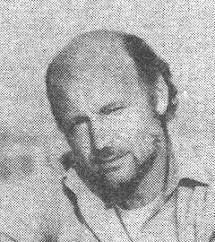Eduardo Galeano facts for kids
Quick facts for kids
Eduardo Galeano
|
|
|---|---|

Eduardo Galeano in 2012
|
|
| Born | Eduardo Germán María Hughes Galeano 3 September 1940 Montevideo, Uruguay |
| Died | 13 April 2015 (aged 74) Montevideo, Uruguay |
| Occupation | Writer, journalist |
| Spouse | Helena Villagra |
Eduardo Hughes Galeano (Spanish pronunciation: [eˈðwaɾðo ɣaleˈano]; 3 September 1940 – 13 April 2015) was a Uruguayan journalist, writer and novelist considered, among other things, "global soccer's pre-eminent man of letters" and "a literary giant of the Latin American left".
Galeano's best-known works are Las venas abiertas de América Latina (Open Veins of Latin America, 1971) and Memoria del fuego (Memory of Fire Trilogy, 1982–6). "I'm a writer," the author once said of himself, "obsessed with remembering, with remembering the past of America and above all that of Latin America, intimate land condemned to amnesia."
Author Isabel Allende, who said her copy of Galeano's book was one of the few items with which she fled Chile in 1973 after the military coup of Augusto Pinochet, called Open Veins of Latin America "a mixture of meticulous detail, political conviction, poetic flair, and good storytelling."
Contents
Life
Eduardo Germán María Hughes Galeano was born in Montevideo, Uruguay, on 3 September 1940. His two family names were inherited from Welsh and Italian (from Genoa) great-grandfathers; the other two were from Germany and Spain. Galeano wrote under his maternal family name; as a young man, he briefly wrote for a Uruguayan socialist publication, El Sol, signing articles as "Gius," "a pseudonym approximating the pronunciation in Spanish of his paternal surname Hughes." Galeano's family belonged to the fallen Uruguayan aristocracy.
After completing two years of secondary school, Galeano went to work at age fourteen in various jobs, including messenger and fare collector. He eventually landed at El Sol. The Uruguayan socialist weekly first published the teenager's comics prior to his writing. Galeano's passion for drawing continued throughout his life; his vignettes can be seen in many of his later books while his signature was often accompanied by a small hand-drawn pig. As a journalist throughout the 1960s Galeano rose in prominence among leftist publications, and became editor of Marcha, an influential weekly with contributors such as Mario Vargas Llosa, Mario Benedetti, Manuel Maldonado Denis and Roberto Fernández Retamar. For two years he edited the daily Época and worked as editor-in-chief of the University Press. In 1959 he married his first wife, Silvia Brando, and in 1962, having divorced, he remarried to Graciela Berro.
In 1973, a military coup took power in Uruguay; Galeano was imprisoned and later was forced to flee, going into exile in Argentina where he founded the magazine Crisis. His 1971 book Open Veins of Latin America was banned by the right-wing military government, not only in Uruguay, but also in Chile and Argentina. In 1976 he married for the third time to Helena Villagra; however, in the same year, the Videla regime took power in Argentina in a bloody military coup and his name was added to the list of those condemned by the death squads. He fled again, this time to Spain, where he wrote his famous trilogy, Memoria del fuego (Memory of Fire), described as "the most powerful literary indictment of colonialism in the Americas."
At the beginning of 1985 Galeano returned to Montevideo when democratization occurred. Following the victory of Tabaré Vázquez and the Broad Front alliance in the 2004 Uruguayan elections marking the first left-wing government in Uruguayan history Galeano wrote a piece for The Progressive titled "Where the People Voted Against Fear" in which Galeano showed support for the new government and concluded that the Uruguayan populace used "common sense" and were "tired of being cheated" by the traditional Colorado and Blanco parties. Following the creation of TeleSUR, a Latin American television station based in Caracas, Venezuela, in 2005 Galeano along with other left-wing intellectuals such as Tariq Ali and Adolfo Pérez Esquivel joined the network's 36 member advisory committee.
On February 10, 2007, Galeano underwent a successful operation to treat lung cancer. During an interview with journalist Amy Goodman following Barack Obama's election as President of the United States in November 2008, Galeano said: "The White House will be Barack Obama's house in the time coming, but this White House was built by black slaves. And I'd like, I hope, that he never, never forgets this." At the 17 April 2009 opening session of the 5th Summit of the Americas held in Port of Spain, Trinidad and Tobago, Venezuelan President Hugo Chávez gave a Spanish-language copy of Galeano's Open Veins of Latin America to U.S. President Barack Obama, who was making his first diplomatic visit to the region.
In a May 2009 interview he spoke about his past and recent works, some of which deal with the relationships between freedom and slavery, and democracies and dictatorships: "not only the United States, also some European countries, have spread military dictatorships all over the world. And they feel as if they are able to teach democracy". He also talked about how and why he has changed his writing style, and his recent rise in popularity.
This interview was picked up by many critics of Galeano's work in which they used the statement to reinforce their own criticisms.
Works
| Year | Spanish title | Spanish ISBN | Spanish Publisher | English translation |
|---|---|---|---|---|
| 1963 | Los días siguientes | Alfa | The following days | |
| 1964 | China | |||
| 1967 | Guatemala, país ocupado | Guatemala: Occupied country (1969) | ||
| 1967 | Reportajes | |||
| 1967 | Los fantasmas del día del león y otros relatos | |||
| 1968 | Su majestad el fútbol | |||
| 1971 | Las venas abiertas de América Latina | ISBN: 950-895-094-3 | Siglo XXI | Open Veins of Latin America (1973) ISBN: 0-85345-279-2 |
| 1971 | Siete imágenes de Bolivia | |||
| 1971 | Violencia y enajenación | |||
| 1972 | Crónicas latinoamericanas | |||
| 1973 | Vagamundo | ISBN: 84-7222-307-8 | ||
| 1980 | La canción de nosotros | ISBN: 84-350-0124-5 | ||
| 1977 | Conversaciones con Raimón | ISBN: 84-7432-034-8 | ||
| 1978 | Días y noches de amor y de guerra | ISBN: 84-7222-891-6 | Del Chanchito | Days and Nights of Love and War ISBN: 0-85345-620-8 |
| 1980 | La piedra arde | |||
| 1981 | Voces de nuestro tiempo | ISBN: 84-8360-237-7 | ||
| 1982–1986 | Memoria del fuego | ISBN: 9974-620-05-8 | Del Chanchito | Memory of the fire: Volume I: Eduardo Galeano (29 April 2014). Genesis. Open Road Media. ISBN 978-1-4804-8138-1. https://books.google.com/books?id=llpQAwAAQBAJ.
Volume II: Faces and Masks. ISBN: 978-0-393-31806-7. Volume III: Century of the Wind. ISBN: 0-393-31807-9. |
| 1984 | Aventuras de los jóvenes dioses | ISBN: 968-23-2094-1 | Siglo XXI | |
| 1985 | Ventana sobre Sandino | |||
| 1985 | Contraseña | |||
| 1986 | La encrucijada de la biodiversidad colombiana | |||
| 1986 | El descubrimiento de América que todavía no fue y otros escritos | ISBN: 84-7668-105-4 | Editorial Laia | |
| 1988–2002 | El tigre azul y otros artículos | ISBN: 959-06-0211-8 | Ciencias Sociales (Cuba) | |
| 1962–1987 | Entrevistas y artículos | Ediciones Del Chanchito | ||
| 1989 | El libro de los abrazos | ISBN: 978-84-323-0690-7 | Siglo XXI | The Book of Embraces ISBN: 0-393-02960-3 |
| 1989 | Nosotros decimos no | ISBN: 84-323-0675-4 | Siglo XXI | |
| 1990 | América Latina para entenderte mejor | |||
| 1990 | Palabras: antología personal | |||
| 1992 | Ser como ellos y otros artículos | ISBN: 978-84-323-0761-4 | Siglo XXI | |
| 1993 | Amares | ISBN: 84-206-3419-0 | Alianza, España | |
| 1993 | Las palabras andantes | ISBN: 9974-620-08-2 | Del Chanchito | |
| 1994 | Úselo y tírelo | ISBN: 950-742-851-8 | Editorial Planeta | |
| 1995 | El fútbol a sol y sombra | ISBN: 978-84-323-1134-5 | Siglo XXI | Football (soccer) in Sun and Shadow ISBN: 1-85984-848-6 |
| 1998 | Patas arriba: Escuela del mundo al revés | ISBN: 9974-620-14-7 | Macchi | Upside Down: A Primer for the Looking-Glass World 2000, ISBN: 0-8050-6375-7 |
| 1999 | Carta al ciudadano 6.000 millones | ISBN: 84-406-9472-5 | Ediciones B | |
| 2001 | Tejidos. Antología | ISBN: 84-8063-500-2 | Ediciones Octaedro | |
| 2004 | Bocas del tiempo | ISBN: 978-950-895-160-1 | Catálogos Editora | Voices of time: a life in stories ISBN: 978-0-8050-7767-4 |
| 2006 | El viaje | ISBN: 84-96592-55-3 | ||
| 2007 | Carta al señor futuro | |||
| 2008 | Patas arriba/ la escuela del mundo al revés | ISBN: 950-895-050-1 | Catálogos Editora | |
| 2008 | Espejos | ISBN: 978-987-1492-00-8 | Siglo XXI | Mirrors: Stories of Almost Everyone 2009, ISBN: 1-56858-423-7 |
| 2008 | La resurrección del Papagayo | ISBN: 978-84-92412-22-8 | Libros del Zorro Rojo | |
| 2011 | Los hijos de los días | ISBN: 978-987-629-200-9 | Siglo XXI | Children of the Days: A Calendar of Human History ISBN: 978-1-56858-747-9 |
| 2015 | Mujeres - antología | ISBN: 978-84-323-1768-2 | Siglo XXI | |
| 2016 | El cazador de historias | ISBN: 978-987-629-628-1 | Siglo XXI | Hunter of Stories 2017, ISBN: 978-1-56858-990-9 |
| 2017 | Cerrado por fútbol | Siglo XXI |
- "The noose". New Left Review II (17). September–October 2002. http://newleftreview.org/II/17/eduardo-galeano-the-noose.
- "Nothingland—or Venezuela?". New Left Review II (29). September–October 2004. http://newleftreview.org/II/29/eduardo-galeano-nothingland-or-venezuela.
Las venas abiertas de América Latina (Open Veins of Latin America), a history of the region from the time of Columbus from the perspective of the subjugated people, is considered one of Galeano's best-known works. An English-language translation by Cedric Belfrage gained some popularity in the English-speaking world after Venezuelan President Hugo Chávez gave it as a gift to U.S. President Barack Obama in 2009.
Galeano was also an avid fan of football, writing most notably about it in Football in Sun and Shadow (El fútbol a sol y sombra). In a retrospective for SB Nation after Galeano's death, football writer Andi Thomas described the work—a history of the sport, as well as an outlet for the author's own experiences with the sport and his political polemics—as "one of the greatest books about football ever written".
Death
Galeano died on 13 April 2015 in Montevideo from lung cancer at the age of 74, survived by third wife Helena Villagra and three children.
Awards and honors
- 2006: International Human Rights Award by Global Exchange
- 2010: Stig Dagerman Prize
- 2021: Posthumous "honoris causa" prize from the National University of Misiones.
See also
 In Spanish: Eduardo Galeano para niños
In Spanish: Eduardo Galeano para niños
- Culture of Uruguay
- List of Uruguayan writers
- Z Communications


